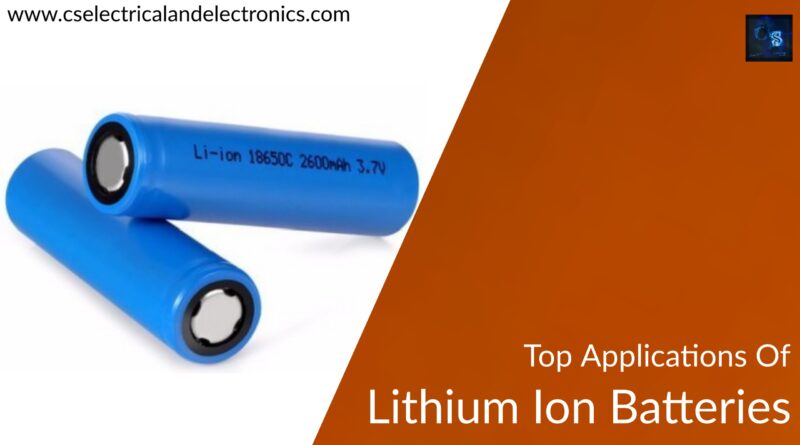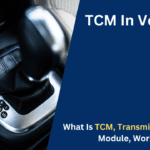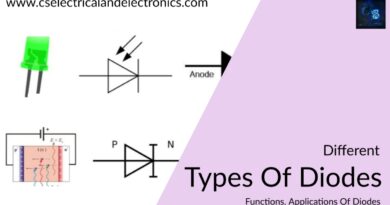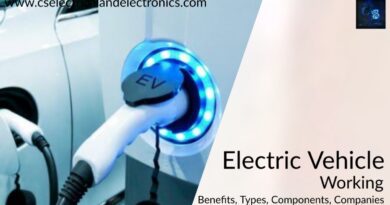Top Applications Of Lithium-Ion Batteries / Cells In The Real World
Hello guys, welcome back to my blog. In this article, I will discuss the top applications of lithium-ion batteries or cells in the real world, what is a lithium-ion battery, what is inside of them.
If you have any doubts related to electrical, electronics, and computer science, then ask questions. You can also catch me on Instagram – Chetan Shidling.
Also, read:
- Top 10 Types Of Testing On Electrical Motors, Electrical Motor Testing
- Circuit Breaker Testing, Top 10 Types Of Testing On Circuit Breakers
- Overhead Line Components, Functions Of Components In Overhead Lines
Applications Of Lithium-Ion Batteries
From powering your phone, lithium batteries offer a vast range of real-world uses. Lithium batteries power everything from life-saving medical equipment to luxurious boats, ensuring that both the necessities and the comforts of contemporary life operate safely and reliably.
What is Lithium-Ion Battery and What is Inside a Lithium-ion Battery Pack?
The lithium-ion battery is made up of a combination of lithium cells. The lithium cell consists of some components such as a negative electrode, a positive electrode, electrolyte, separator, current collectors, etc. A cell means which consists of a single anode and cathode separated by an electrolyte used to produce voltage and current.
However, it’s worth noting that when employed inside a battery’s equipment, lithium is a highly unstable element in and of itself. For practical purposes, a mixture of lithium and oxygen termed lithium oxide is utilized as the cathode. This is because lithium oxide is a far more stable molecule than pure lithium.
The cathode is crucial in defining the battery’s characteristics. The type of active material placed on the cathode determines the battery’s capacity and voltage. Lithium ions are present in the active substance in this scenario. The capacity increases as the number of ions increases, and the voltage increases as the difference in potential between the cathode and anode increases.
Applications Of Lithium-Ion Batteries
01. UPS Or Power Backup In An Emergency (Uninterruptible Power Supply):
When utilized as an emergency power backup or UPS, a lithium battery protects you against power interruptions or instability. It differs from a generator or other emergency power source in that it offers near-instant electricity to run (or securely shut down) the equipment to which it is attached. Computers, communication technologies, and medical technology all benefit from emergency power backup systems.
02. Power For Electric And Recreational Vehicles That Is Reliable:
Lithium batteries provide dependable, steady, and long-lasting power, making them the greatest choice for keeping comfortable while exploring distant areas securely. Lithium batteries offer electricity for extended journeys and lose minimal power between uses, with a life duration of over 10 years. Because lithium batteries are lighter and smaller than lead-acid batteries, they can power your RV or electric car more efficiently.
03. Marine Performance That Is Both Reliable And Lightweight:
Water and electricity together have the potential to generate a host of problems. Lithium batteries allow you to concentrate on the pleasure of being on the water rather than worrying about whether or not your marine engine will start at the end of the day. Upgrade to a long-lasting rechargeable lithium battery for years of trouble-free motor starts at a fraction of the weight of a normal lead-acid battery.
04. Storage of Solar Energy:
Between 2013 and 2014, the utilization of solar energy in the United States rose by 30%. There are days when the sun doesn’t shine or when your solar equipment has to be repaired, even in the desert. With lithium batteries for solar power storage, you won’t be left in the dark.
Because of how and how quickly they charge, rechargeable lithium batteries are the perfect complement for solar panels. Low resistance charging is produced by solar panels, which is what lithium batteries require. Furthermore, lithium batteries charge rapidly, allowing you to get the most amount of solar energy from each day of sunlight.
05. In Remote Locations, Surveillance Or Alarm Systems:
Allowing your security to be hampered by the lack of hard-wired electricity is a mistake. Do you need to keep an eye on remote perimeters, a fleet of vehicles, construction sites, or a temporary location where a permanent alarm system cannot be installed? Surveillance or alarm systems powered by lithium batteries can be used to secure any of these problematic places.
Because of their extended life, compact size, and lack of self-discharge when your system is idle, rechargeable lithium batteries are perfect for remote monitoring systems. Lithium batteries have a self-discharge rate that is ten times lower than lead-acid batteries, making them ideal for situations where they aren’t utilized continually.
06. Mobility Equipment Provides Personal Freedom:
For persons with mobility issues, modern technology has made life simpler. Many people rely on trustworthy mobility equipment to live an independent life, from electric wheelchairs to stairlifts. When compared to lead-acid batteries, lightweight lithium batteries are the best choice for mobility equipment because they offer smaller adaptability, a longer life span, rapid charging, a low self-discharge rate, and a longer operating duration.
To summarise, lithium batteries recharge far faster than lead-acid batteries when they do need to be charged. Custom lithium battery solutions also enable you to upgrade your current technology to a more durable and efficient portable power source. Under extreme circumstances, rechargeable lithium batteries are both cost-effective and long-lasting. Lithium batteries provide a safe and long-lasting alternative where consistent performance is required.
This was about ” Applications Of Lithium-Ion Batteries “. I hope this article may help you all a lot. Thank you for reading.
Also, read:
- 10 Tips To Maintain Battery For Long Life, Battery Maintainance
- 10 Tips To Save Electricity Bills, Save Money By Saving Electricity
- 100 (AI) Artificial Intelligence Applications In The Automotive Industry
- 100 + Electrical Engineering Projects For Students, Engineers
- 1000+ Control System Quiz, Top MCQ On Control System
- 1000+ Electrical Machines Quiz, Top MCQs On Electrical Machines
- 1000+ MATLAB Simulink Projects For MTech, Engineering Students
- 50 Tips To Save Electricity At Home, Shop, Industry, Office
Author Profile
- Chetu
- Interest's ~ Engineering | Entrepreneurship | Politics | History | Travelling | Content Writing | Technology | Cooking
Latest entries
 All PostsApril 29, 2024Top 11 Free Courses On Battery For Engineers With Documents
All PostsApril 29, 2024Top 11 Free Courses On Battery For Engineers With Documents All PostsApril 19, 2024What Is Vector CANoe Tool, Why It Is Used In The Automotive Industry
All PostsApril 19, 2024What Is Vector CANoe Tool, Why It Is Used In The Automotive Industry All PostsApril 13, 2024What Is TCM, Transmission Control Module, Working, Purpose,
All PostsApril 13, 2024What Is TCM, Transmission Control Module, Working, Purpose, All PostsApril 12, 2024Top 100 HiL hardware in loop Interview Questions With Answers For Engineers
All PostsApril 12, 2024Top 100 HiL hardware in loop Interview Questions With Answers For Engineers








